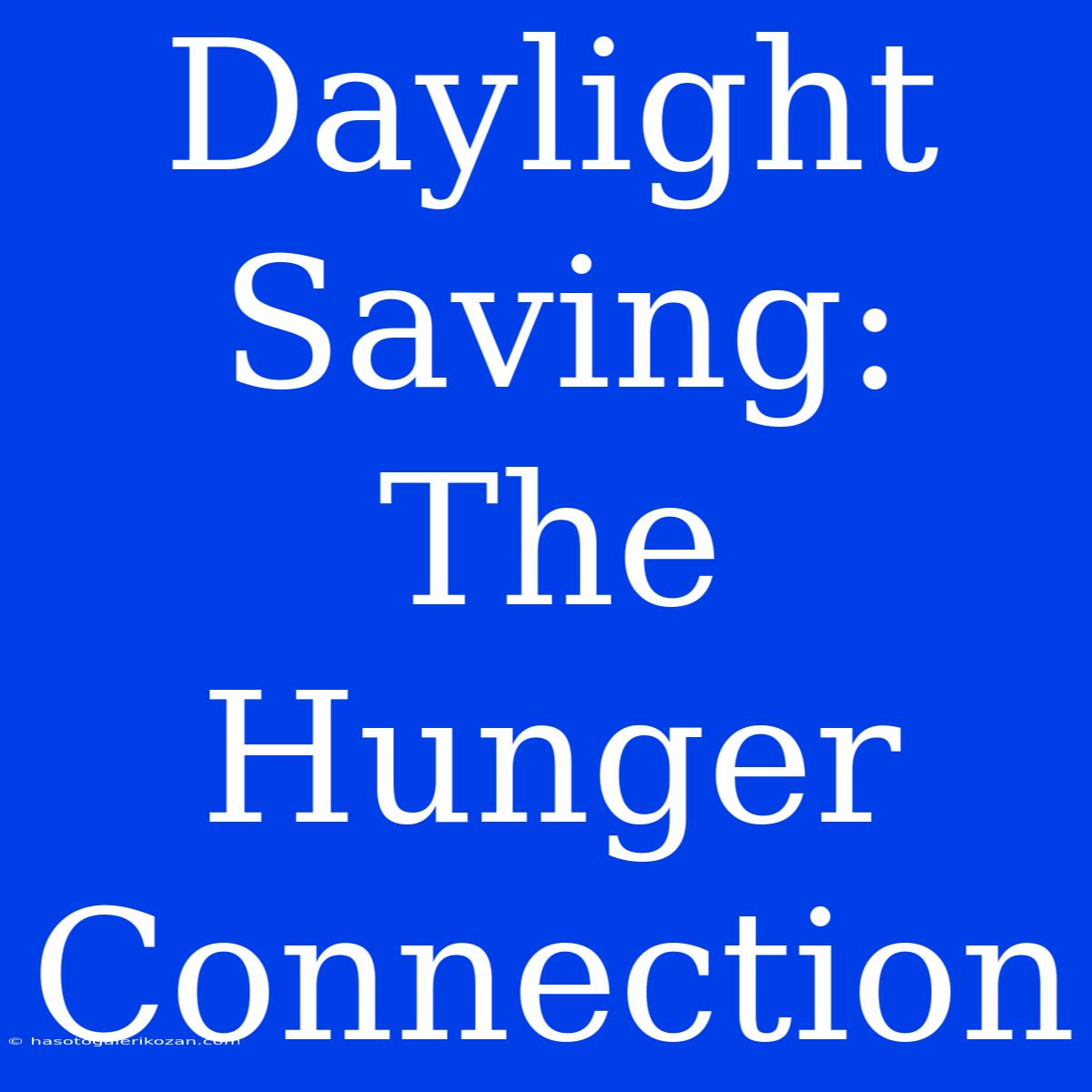Daylight Saving: The Hunger Connection - How Shifting Clocks Can Impact Our Tummies
Daylight Saving Time (DST) is a familiar ritual, a biannual adjustment to our clocks that brings an extra hour of daylight in the summer. But while it might seem like a simple time-shifting exercise, the impact of DST goes beyond just the amount of sunshine we experience. It can also influence our eating habits and potentially even our health.
The Clock Ticking on Our Hunger Hormones
The human body runs on a complex system of internal clocks, known as circadian rhythms. These rhythms govern a wide range of bodily functions, including sleep-wake cycles, hormone production, and yes, even hunger. DST's disruption of our sleep-wake cycle can have a knock-on effect on our hunger hormones, ghrelin and leptin.
Ghrelin, often dubbed the "hunger hormone," signals to the brain when we're hungry. Leptin, on the other hand, tells the brain we're full. DST can cause an imbalance in these hormones, potentially leading to increased ghrelin levels and a heightened feeling of hunger.
Shifting Meal Times and Food Choices
Another key factor in the DST-hunger connection is the shift in our meal times. Our bodies are accustomed to eating at certain times, and DST disrupts this routine. The sudden change in our daily schedule can throw our bodies off balance, making us more susceptible to cravings and overeating.
Imagine this scenario: You're used to having dinner at 7 PM, but DST shifts this to 8 PM. Your body is still expecting dinner at 7 PM, leaving you feeling hungry and more likely to indulge in unhealthy snacks or overeat at dinner.
Furthermore, the extended daylight hours in summer can encourage later dinners, potentially leading to less time between eating and sleeping. This can disrupt sleep patterns, further contributing to the hormonal imbalance and contributing to weight gain.
What Can You Do?
1. Adjust Gradually: When DST begins, try to gradually adjust your meal times, easing your body into the new schedule.
2. Stay Hydrated: Sometimes hunger is simply thirst in disguise. Make sure you're drinking enough water throughout the day.
3. Prioritize Sleep: Getting enough sleep is crucial for maintaining healthy hormone levels. Aim for 7-8 hours of quality sleep each night.
4. Mindful Eating: Be conscious of your eating habits and choose healthy, balanced meals. Avoid mindless snacking and focus on satisfying your hunger with nutritious foods.
The Bottom Line
Daylight Saving Time may bring more daylight, but it also comes with a hidden hunger connection. By understanding how DST affects our hunger hormones and meal schedules, we can make informed choices to manage our eating habits and prevent the negative effects of this seasonal shift.
